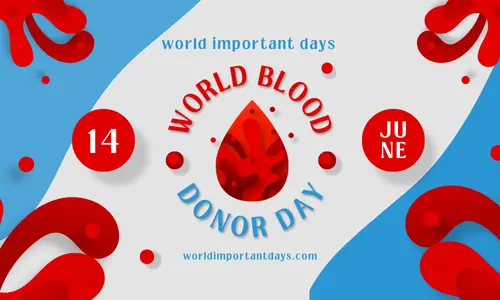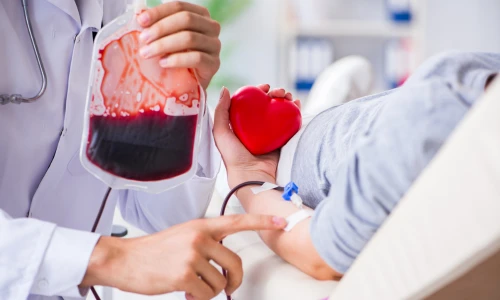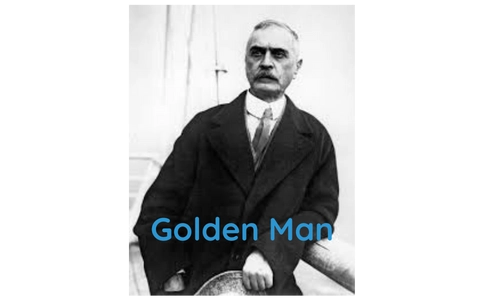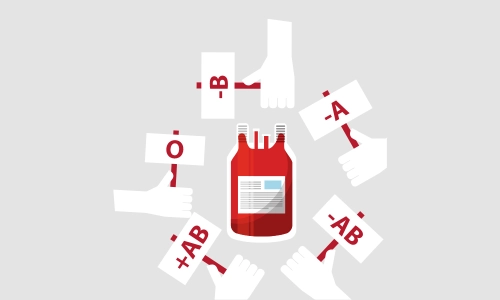World Blood Donor Day – Life’s Precious GIFT
Updated: 18 Jun 2024
143
Each year, blood transplants and blood products help save millions of lives. It can support delicate medical and surgical processes and help patients with life-threatening conditions live longer and with a higher quality of life. Likewise, it plays a very important, life-saving role in maternal and prenatal medicine. Blood services must balance the need to ensure the safety and quality of blood with the reality that there is often an insufficient supply of safe blood in many nations. The level of access to safe blood varies significantly between high- and low-income nations.

Unpaid Donors – Safest Blood

Only voluntary, unpaid blood donors on a regular basis can ensure a sufficient supply of safe blood. Due to their low rate of blood borne infection, these donors are the safest type of donors. By 2020, WHO wants all nations to get all of their blood supplies from willing, unpaid donors.
Ensuring Safe and Accessible Blood Transfusions for All

The World Health Organization recommends all nations to create laws, procedures, and frameworks that guarantee the security, may have, ease of access, and immediate availability of blood and blood products to satisfy the demands of all patients in need of transfusions. Suitable laws need to boost policies in order to encourage standardization of standards and reliability in the safety and quality of blood and blood products. Through efficient organization and management, all blood-related operations testing, distribution, processing, storage, and testing should be organized at the national level.
Video By World Health Organization ( WHO)
When & Why Was World Blood Donor Day Established?
In 2004, the inaugural World Blood Donor Day was celebrated. The Fifty-eighth World Health Assembly then confirmed it to be an annual worldwide event in 2005. Today, June 14 is identified as World Blood Donor Day on a global scale to honor voluntary, unpaid blood donors and to increase awareness of the value of blood donation in protecting life and boosting health.

Karl Landsteiner (1868–1943), an Austrian physician and biologist who is given credit with being the “founder” of modern blood transfusion, was born on June 14th. In addition to creating the current system of blood group classification and uncovering the ABO blood groups in 1901, Landsteiner also worked with Alexander S. Wiener to identify the Rhesus factor in 1937, which allowed doctors to transfuse blood without risking the patient’s life.
Importance of Voluntary Blood Donors

Three lives can be saved by a single unit of donated blood. A large number of transfusion-dependent patients, especially in developing nations, lack timely access to safe blood. The foundation of a sufficient and safe blood supply is voluntary, unpaid blood donation. The safest source of blood is from regular voluntary donors because their rates of blood borne infection are lower than those of donors who donate for pay or in an urgent situation for family members.
| Blood Donation – A Lifesaving Gift |
|---|
|
The two most common uses of donated blood in low- and middle-income nations are severe childhood anemia and complications related to pregnancy. |
There are different methods to participate in World Blood Donor Day events.

Here are a few aspects.
- Take part in the World Blood Donor Day celebrations in your community.
- Donate Blood at the nearest blood donation clinic.
- Make Small communities in your local areas to ensure timely blood supply for any emergency
- Make small teams of unpaid blood donors
- Organized Annually programs to appreciate the Upaid Donors
- Spread awareness on social media by posting relevant content and encouraging everyone about the importance of blood donation.
Health ministries:
Plan events to commemorate World Blood Donor Day and spread awareness of voluntary, unpaid blood donation among the general public, government agencies, and other sectors. Discuss with the media the worth of blood donation as well as the achievements and difficulties your nation has had in providing the country’s blood needs through voluntary, unpaid donations. Hand out flyers and posters encouraging blood donation to medical facilities.
Please Write Your Comments